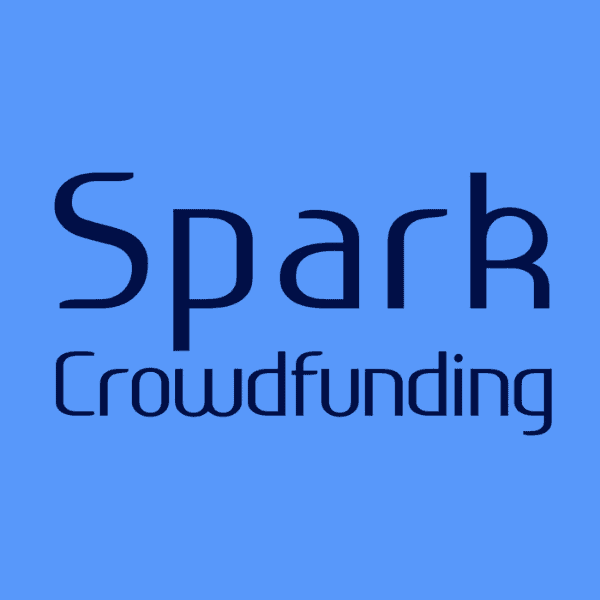What is equity crowdfunding and how does it work?
Equity crowdfunding is a great alternative to traditional bank loans or business grants and government startup support. It’s a way of raising money to set up your company or to finance your growing business. Under equity crowdfunding, equity in your company is offered to individual investors, usually through a crowdfunding company.
Christopher Burge, of Spark Crowdfunding, explains how anyone can invest in or be invested in through crowdfunding. A crowdfunding company creates a market of both investors and businesses that need funding. They act as a facilitator to try and connect investors with high-growth companies.
This article is a summary of one of our #BusinessGrowth webinar series. See a list of all our upcoming events to register and learn from experts to help you grow your business in Ireland.
In this blog, you’ll learn:
Why you should use crowdfunding
Crowdfunding is simple. The goal is to make it easy to access and use for everyone, not just big investors. It’s quick, compared to other investment options. For example, talks with Venture Capitalists can last between 6 to 9 months. In comparison, completing a crowdfunding campaign is possible in as little as 8 weeks.

Different types of crowdfunding
Donation
Example: marathon sponsorship for charity
No expectation of return on investment
Reward-based
Example: Kickstarter, Indiegogo
Investment for non-monetary returns, such as t-shirts, free products or services from the company
Lending-based debt
Example: Linked, Gold Finance
Investment for financial return on amount borrowed
Between 5% to 15% return, depending on risk
Equity-based
Example: Spark
Investment for shares of a business
For financial return upon sale of shares, with potential for high return or zero return on investment
How does equity crowdfunding work?
Equity crowdfunding companies, like Spark, create a marketplace for investors and those seeking investment. Investors pay for shares of the business. Note that equity investment is for a share of a whole company. Crowdfunding is not suitable for investment in single products or subsidiaries of larger companies.

The Spark crowdfunding process
1) Apply and check eligibility
- Businesses seeking investment apply to the platform. Spark then checks their eligibility. They look for companies that offer high potential for growth.
2) Create, launch & promote campaign
- Campaigns include a video, a slideshow deck, and text describing your business.
- Spark can help with your campaign as part of their premium service.
- You should also use your connections and personally promote the campaign on social media.
3) Raise goal amount & grow your business
- The campaign is given a set amount of time to raise their goal amount and then closed.
- Spark does the legal work involved with releasing funds.
- Funds are released to the business to use as they choose.
Who can use crowdfunding?
Anyone looking for investment can use crowdfunding. The process isn’t limited to Venture Capitalists or Angel investors.
The minimum campaign goal for Spark is €100,000 and the average is between €250,000 and €700,000. The average investment is €2500. However, in general, a campaign will attract many small investors and a few large investors. This makes it attractive to businesses and investors of all sizes.

Can companies that are pre-revenue apply?
While businesses in the post-revenue stage might be more attractive to investors, companies at any stage are welcome. Companies are generally young since crowdfunding is aimed at businesses with high growth potential. However, there is no age limit on which businesses can apply.
Spark investors are regularly polled to see what businesses they are most interested in. The areas of interest are very varied. Of course, some sectors, such as Financial Tech are more popular than others.
How to prepare for the crowdfunding process

Gather documents

Create demand

Think of the big picture
Guide to success using crowdfunding
Certain things make it easier to attract investment via equity crowdfunding.
- Having a strong team who knows the business inside and out.
- Being rich in Intellectual Property. This is because these companies with IP are harder for others to copy.
- Having a scalable business. This means the business has high growth potential and continually builds value.
- Having an exit plan. For example, is the end goal to sell the company? If so, what is the time span of this exit plan?
- Having an existing source of revenue. These businesses are more attractive than ones in the pre-revenue stage.
- Having a good network, for example on social media. This can make it easier to promote your campaign and attract investors.
- Being “investible” as a business owner. This includes knowing your business completely and being able to give sale pitches.

Valuating your business
Valuation is the most disputed issue involved with crowdfunding. The valuation is decided by the business. However, in order to attract investment, you need to be careful not to over-valuate your company. There is no debate from investors about the valuation. Investors must accept the valuation given and choose whether to invest or not.
Tax Implications of crowdfunding
Companies do not pay Capital Gains Tax on equity raised. This means all money raised can go into your business.
Investors can qualify for Employment Investment Incentive (EII). This is a tax break of 40% on the money they invest. This means if investors invest €1000 into a business, they only pay €600 while getting €1000 worth of shares. Spark recommends having an accountant verify your eligibility for this tax break.
Mistakes to avoid when pursuing equity crowdfunding
- Not doing enough research. You should know everything about your company and be able to answer questions from potential investors
- Not having proof of concept. This is evidence that your business idea is feasible
- Not knowing who your target audience are
- Not creating enough marketing materials
- Not making enough use of digital marketing platforms, such as social media
- Not accepting feedback from investors
- Not providing evidence of business traction. This is evidence that your company can and will progress. An example would be evidence of demand for your business, for instance, the number of social media followers or the amount of website traffic you have. Pilot products can also be useful in generating demand and showing your business has traction

Misconceptions about equity crowdfunding (ECF)
Online crowdfunding alone is enough to advertise your business.
False. You need to use all types of marketing tools to reach the widest audience.
Equity crowdfunding is all about the money raised.
False. ECF also provides valuable marketing exposure and can create interest in your business.
Launching a business using crowdfunding is easy.
False. Crowdfunding is a great source for funding and raising awareness of your business but it’s also a lot of hard work. You need to be ready to put the effort in.
The longer the crowdfunding campaign, the better.
False. A campaign with a tight deadline often gets the best results. During this time all avenues of attracting investors should be exhausted.
Spark fees and other supports they offer
 For their basic service Spark charge 7% of the amount raised. So, for example, if you raise €200,000, Spark will charge fees of €14,000. They also offer a premium service where they will write all your campaign materials for you. This will include a press release and one-page financial summary. This service costs €2500 upfront and a further €2500 if your goal is met.
For their basic service Spark charge 7% of the amount raised. So, for example, if you raise €200,000, Spark will charge fees of €14,000. They also offer a premium service where they will write all your campaign materials for you. This will include a press release and one-page financial summary. This service costs €2500 upfront and a further €2500 if your goal is met.
However, note that Spark is not a debt facility. There are no interest fees charged on money earned. All the money raised, minus Spark’s fees, is yours to use in your business.
If your investment goal is not met but a few, large investors are still interested in investing after the campaign, Spark will help facilitate this.
Crowdfunding is a great way to raise funds to grow your business. It’s open to anyone and is often a quicker and less expensive alternative to raising funds through Venture Capitalists or Angel investors.
#BusinessGrowth webinar series


Larissa is a Fellow Chartered Accountant (FCA) and is the CEO of Accountant Online, which specialises in company formation, company secretarial, annual accounting services, bookkeeping, tax, and payroll services for micro and small companies in Ireland and the UK.


